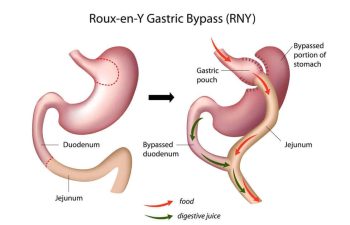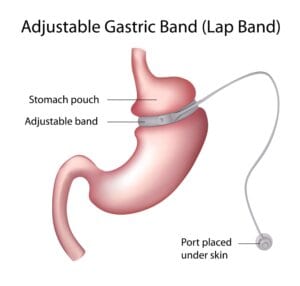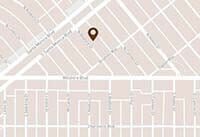
Morbid obesity is a severely growing problem in the United States. It is defined as having 100 pounds in excess over your regular body weight. While non-surgical treatments of weight loss require extensive diet and exercise regime, many estimates state that most of the patients undergoing non-surgical treatments regain their weight after just 2-4 years (in case of severe obesity). This means that surgery remains the only effective treatment for morbid obesity.
Certain studies conducted have compared lap band and gastric bypass as recommended surgical weight loss methods. Let us understand both the procedures and their differences.

Understanding Lap Band Surgery & Gastric Bypass
Adjustable gastric band surgery or lap band surgery is a surgical treatment for obesity by reducing the stomach size. This process is done laparoscopically which makes it minimally invasive, quick and reversible.
It involves placing a silicone band around the upper portion of the stomach to achieve weight loss. This creates a small pouch above the band which leaves the rest of the stomach intact below. The procedure’s purpose is to reduce the amount of food intake at any given time.
On the other hand, gastric bypass surgery helps you lose weight by changing the way your stomach and intestine handle the food you eat. Performed laparoscopically as well as with open surgery, during this procedure the surgeon staples the upper portion of the stomach so it becomes a small pouch which is attached to the small intestine. This process not only reduces the food intake, but also forces the food to bypass the rest of the stomach and upper part of the intestine. Drastic weight loss after this procedure is common since the amount of food consumed reduces.
Weight Loss Results
In case of Lap Band Surgery the average weight loss results depends on individual motivation and adherence to doctor’s advice. Most patients lose about 40 – 60% of the excess weight after this procedure.
In case of Gastric Bypass the amount of weight loss depends upon the patient’s adherence to diet and lifestyle changes, but mostly people lose about 100 pounds after the surgery. It is important to maintain healthy eating habits and exercise to sustain the weight loss.
Common Side Effects
Every weight loss surgery has the probability of some side effects. Let’s find out the common side effects for both.
In case of Lap Band surgery, the procedure has a moderate risk of long term complications. Approximately 15% to 60% of the patients need to get the procedure done again due to malpositioning of the implant, erosion, vomiting and lack of weight loss. Further, constipation, nausea and indigestion are some of the common side effects post-surgery.
The potential side effects of a Gastric Bypass may include body aches, dry skin, hair fall, fatigue and mood swings particularly during the first year post surgery. This happens due to rapid weight loss. When the weight stabilizes, these symptoms usually fade away.
Final Thoughts
Making a decision regarding weight loss surgery is not easy. It requires counseling and a lot of discussions with an experienced surgical weight loss specialist. Noted weight loss surgery specialist Dr. David Davtyan and his care team in LA ensure that your well-being is always at the top of the priority list. Contact us for a complimentary consultation and we shall answer all your inquiries.
Posted on behalf of Dr. David G. Davtyan MD, FACS, FICS





